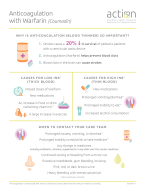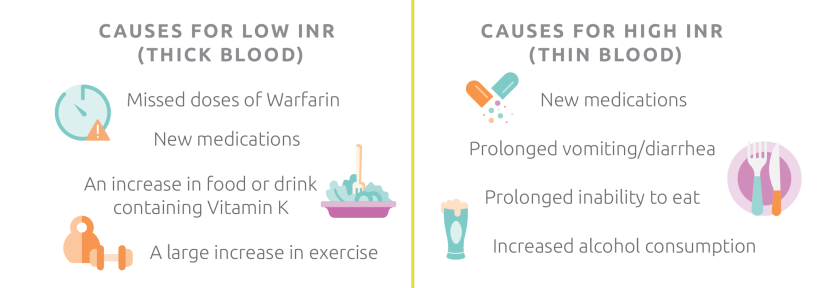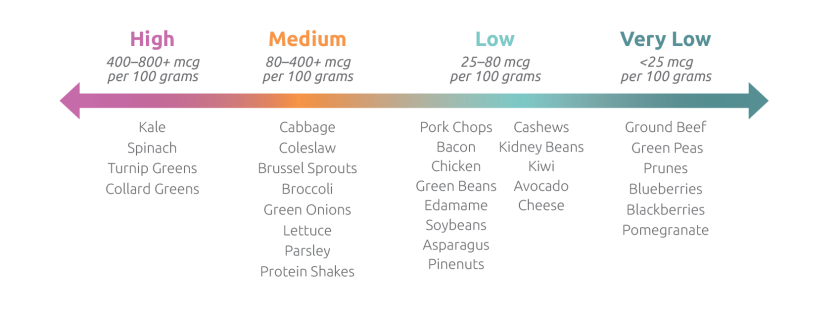Warfarin (Coumadin)
Warfarin (brand name Coumadin) is a blood thinner that helps to prevent or treat blood clots.
Warfarin is one of the most important medicines you will take. You will have your labs drawn to tell your doctors how well your medicine is working. This lab is called an INR. An INR describes how thick or thin your blood is. A low INR means that your blood is too thick, and a high INR means that your blood is too thin. Your doctor will change your warfarin dose so that your INR is in the correct goal for you.

This infographic provides important information on Warfarin.

Your doctor will decide the best INR goal for you, but for many patients, the goal is around 2–3. The dose that you will need will go up and down frequently based on your INR. When you’re just starting out, it can take days to a week to get the right dose.

You will probably start warfarin while you are still on an IV anticoagulant (heparin or bivalirudin) and continue on the IV anticoagulant until your warfarin dose is just right. This may take several days. All warfarin tablets (no matter the brand name) have a color and shape that indicate their strength, or how many milligrams (mg) are in each tablet (see image below). As there may be frequent changes in your warfarin dosing, please be familiar with your dose’s tablet color and shape. Contact your care team ahead of time if you need refills on medicine so you don’t miss taking any of your doses.

Warfarin can be a tricky medication because it interacts with lots of different medicines and foods, especially those that are rich in vitamin K. Green leafy vegetables are rich in vitamin K. Eating lots of these types of foods can decrease your INR or make your blood thicker. It is important to have a consistent diet that includes a consistent serving of foods that contain vitamin K each week. Below are some examples of vitamin K rich foods (from high to low) to be mindful of while on the medicine. Foods with high to medium amounts of Vitamin K will interact with warfarin the most.

It is also important to talk to your doctor before starting any new medications or dietary supplements. This includes anything given to you by another doctor, over-the-counter medicine, herbal medicine, or vitamins/supplements. These things can interfere with your warfarin to make your INR values too high or too low. Your care team, including doctors, pharmacists, and dieticians, will help you understand how your diet and other medicines affect warfarin.
Contact your care team if you have the following symptoms:
- Easy bleeding and bruising
- Prolonged nausea, vomiting, or diarrhea
- Prolonged inability to eat/drink or take medicine
- Any change in medications including antibiotics or over the counter medicine
- Continued oozing or bleeding from a minor cut
- Excessive nosebleeds, gum bleeding, bruising
- Pink, red, or dark brown urine
- Blood in your stool
- Heavy bleeding with menstrual period